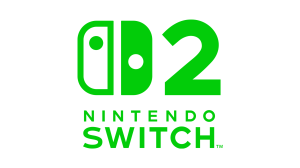Next month, Dynamite’s The Lone Ranger will return — this time from the creative team of writer Mark Russell, artist Bob Q, and colorist Hassan Otsmane-Elhaou. Fans who have seen Russell deconstruct Prez and The Flintstones might be eager to see what new, crazy subversion he has up his sleeve — but he promises that The Lone Ranger is a different animal.
Videos by ComicBook.com
The series, which begins in October, is “a good western about the death of the west,” Russell said, and features a story in which the Lone Ranger knows he needs help, and goes in search of his estranged former ally Tonto — with whom, it seems, he has not had much of a relationship as the story begins.
Russell joined ComicBook.com for a brief conversation about the series, and what to expect in the months to come…along with a couple of preview pages and covers by Mike Allred and Francesco Francavilla debuting here!
This is not the first time in the recent-ish past that Dynamite has done an origin story for the Lone Ranger. Did you look back at the previous volume and re-read it to get a sense for how you wanted to differ?
No, I just sort of barreled ahead knowing the sort of story I wanted to write. My story, though it references the Lone Ranger’s origins, isn’t really an origin story so much as a story of how the Lone Ranger learns how to use asymmetrical warfare and guerilla tactics to bring down villains with much greater wealth and resources at their disposal.
When your name first came up for this my brain first went to Lenny Bruce’s “Thank You Mask Man.” Given your reputation for being a bit seditious, is it nice to have a first issue that actually does not steer hard into that territory?
[Start Gallery Call-to-Action Key=7553]Yeah, my goal for this series was not to do a satirical deconstruction of The Lone Ranger, but to actually write a good western about the death of the west. To write about how we, As Americans, killed our own mythology of the wild west by carving it up with barbed wire and turning the land into ranches and real estate. As Americans, we loved our stories of cowboys and Indians and the open prairie, just not as much as we loved strip malls, hamburger, and cheap steaks, it would seem.
That said, the post-Civil War setting certainly gives you ample room for some allegory. Can we expect you to explore that a bit?
Yes. I think the Civil War and the Old South still informs a lot of American political ideology, particularly in red state conservatism which really seems to be about constantly molding America into the loose model of a plantation, i.e. with a small rich white aristocracy in charge, minorities in chains or working the fields for next to nothing, women quietly resigned to the kitchen and the bedroom, and a large force of angry armed poor white people to enforce the status quo. In a lot of ways, the Old West is our national mythology because it represents our attempt to imagine a way of life not bound to these traditional roles.
I was really struck by the coloring here. Did you work with the art team to develop a look for this that differs somewhat from previous takes on the Lone Ranger?
No, unfortunately, I can’t take any credit for that. Other than a script note here and there about what time of day it is or about the emotional tone of the scene, I try not to load them with more details than they need. I find that when you’re working with artists as talented and knowledgeable as Bob [Q] and Hassan [Otsmane-Elhaou], the best thing to do is to get out of the way and let them use their creativity to tell you how a scene is going to look.
Tonto’s backstory is driving a lot of the relationship at least in this first arc. What made you want to make that pairing a bit more fractured?
I wanted Tonto to be his own man with his own story and his own pain. Not just an accessory to the Lone Ranger who shows up when needed, but a guy with his own agenda and his own reasons to fight his battles. This is less a story about friendship than it is about camaraderie. Men of different ethnicities and backgrounds finding common cause against a massive foe determined to bury them both.
In the long run, the story of the frontier versus industrialization is one that we know the Lone Rangers of the world lost. How does that add a different dimension to the kind of story you’re telling here?
It roots it a little more in the historical reality of America, but more importantly, fighting for what we know to be a losing cause doesn’t make it any less important to these characters. It doesn’t make their lives any less worth fighting for knowing they are doomed to ultimately fail. In a deeper sense, we need to train ourselves to stop equating winning with justice.








